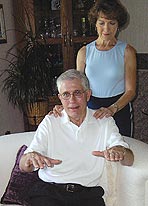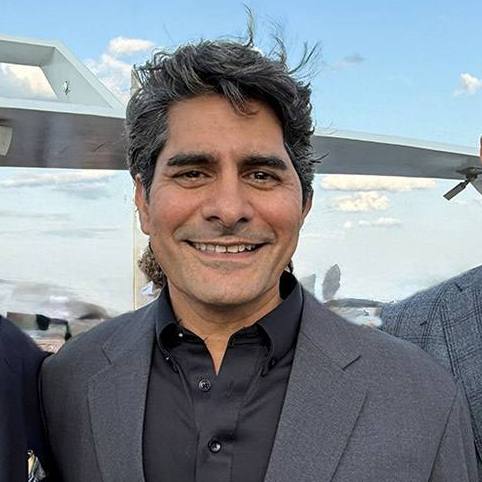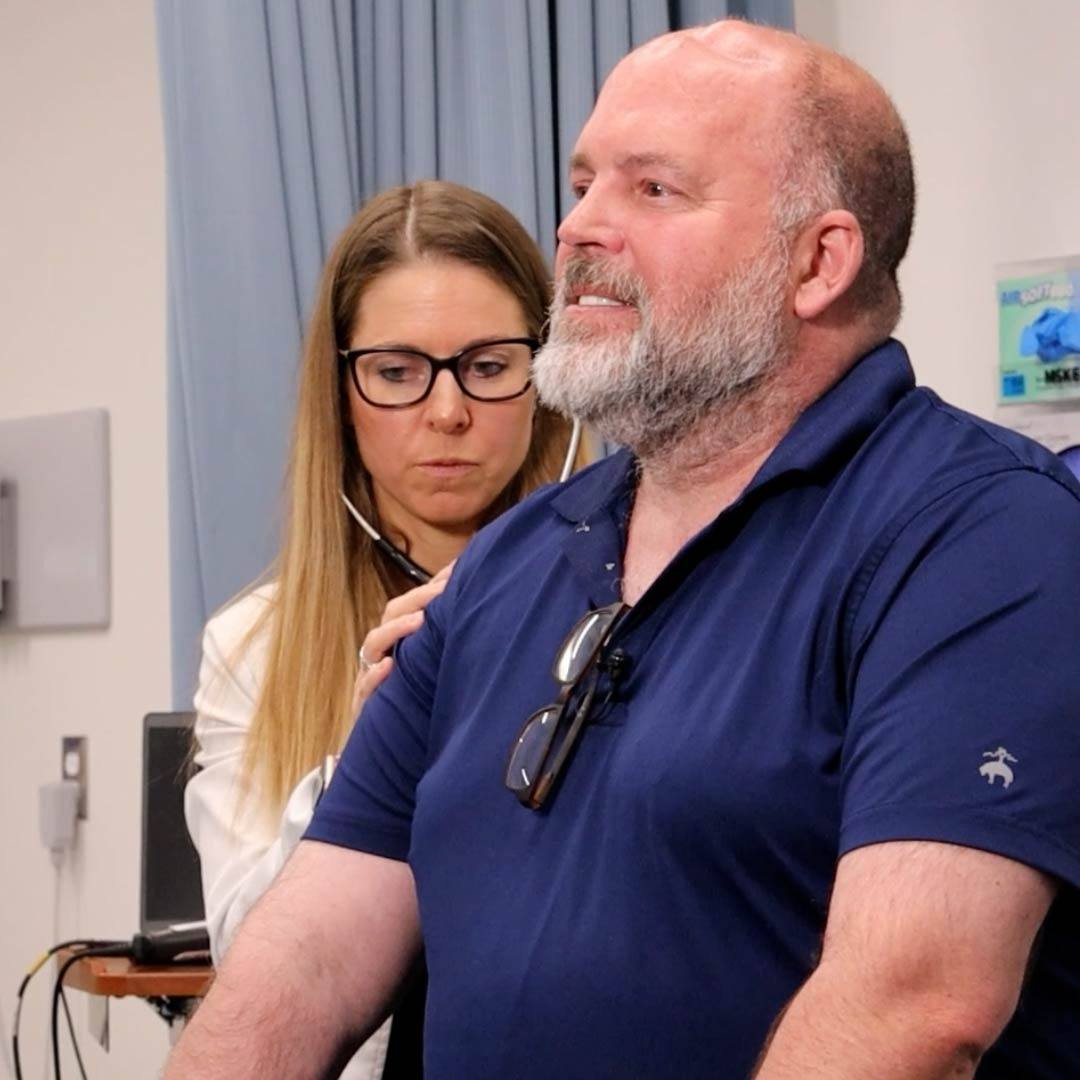
About 14 years ago, Joe Lueken was working at his grocery store and noticed occasional tremors.
"I didn't think anything of it, but it got to me more and more," Joe said.
After a trip to a local physician, followed by examination at the Mayo Clinic, he received a diagnosis of Parkinson's disease.
About a year before Joe's diagnosis, he helped the Bemidji State University Foundation launch the BSU Full Tuition Scholarship. Sue Kringen, BSU Foundation senior director of development, said she asked Joe for an initial donation, and he was glad to comply.
On June 15, Joe's scholarship contribution and his Parkinson's disease met full circle. He underwent deep brain stimulation surgery at St. Mary's Hospital at the Mayo Clinic. The procedure involves a neurosurgeon placing thin metal electrodes about the diameter of a piece of spaghetti into brain targets and attaching the electrodes to a computerized pulse generator. Signals from the pulse generator help control the shaking of Parkinson's disease.
The surgeon who performed the operation, Dr. Jeremy Fogelson, is a 1996-2000 beneficiary of a BSU Full Tuition Scholarship. He graduated with his medical degree from the University of Minnesota and is now doing medical training at Mayo, currently working with neurosurgeon Dr. Kendall Lee.
"The personal touch of knowing he helped me get through school raised my emotional level," Fogelson said in a telephone interview. "To be able to turn it around and help somebody who helped me with my education was wonderful."
Since about 12 years ago, Joe's tremor has worsened to the extent that it was difficult for him to hold a glass of water without spilling or read a magazine or newspaper without spreading it on a solid surface. His shaking hands wouldn't let him hold anything steady.
He said sometimes the range of shaking motion in his hands was as much as six inches. Medication had ceased to help the symptoms about a year ago.
"He could hardly sign his name," said Janice Lueken, Joe's wife of 45 years.
During the operation, Joe was conscious, with the top of his skull numbed by local anesthetic. He has two small entry points, but there was no need to shave all his hair.
"We have to do the surgery awake so we can confirm the target," Fogelson said.
He said he has been working with Dr. Lee for about three months learning the DBS surgery procedure. As a result, Fogelson was the surgeon to insert the electrodes.
Amazing results
The change in Joe's condition was immediate and profound. As the surgery progressed and Fogelson placed the electrodes, Joe's trembling hands immediately became motionless and under his complete control as he held them out in front of himself.
Fogelson said Joe kept looking at his hands and saying, "They haven't been like this in 12 years."
"It was wonderful," Fogelson said. "I touched on the nerves that were there for this surgery. We were all excited in the O.R. We were giving high-fives."
Janice said she also was amazed at the change.
"They brought him some orange juice when he could drink, and there wasn't a ripple," she said. "That was just hours after they brought him up from recovery."
Janice added that Lee told them Fogelson's surgery was the quickest and smoothest he had ever seen the DBS procedure performed. "He said, 'Today, I assisted Dr. Fogelson,'" she recalled.
Joe spent the night in the hospital and came home the next day. He was back at work at Lueken's Village Foods a couple of days later.
Although the brain surgery was performed without general anesthetic, the doctors put Joe out to thread the electrode leads under his skin to the subcutaneous computerized pulse generator lodged near his collarbone. Joe said he can feel a little tingle in his arm when the electricity pulses.
If tremors return, the device, which is made by the Minnesota-based Medtronic company, can be adjusted remotely without further surgery.
Fogelson said DBS surgery won't cure every Parkinson's patient. He said Joe's condition is known as benign tremulous Parkinson's. However, Fogelson said he and Lee want more patients to go through evaluation to see if they can be helped by the DBS procedure.
He said many people have worked during the last decade to develop the DBS surgery, and currently about 3,000 operations are performed annually in the United States.
Because of the relatively small number of patients, Fogelson said doctors don't know whether DBS stops the progression of the disease. They also don't understand exactly how it works to halt tremors. However, he said it doesn't seem to cause any harm to perform DBS early on in the disease.
Joe started evaluation for the DBS treatment last fall, undergoing many physical, psychological and cognitive tests. His motions were videotaped. His case then was discussed by a committee of physicians before he was approved as a candidate.
There are some risks to the procedure, Joe said, but that is the case with any surgery. "Benefits outweigh risks," he said.
Copyright 2007 Bemidji Pioneer. Reprinted with permission.







